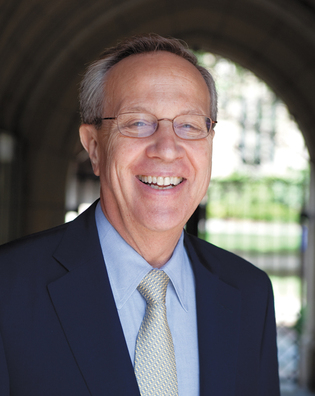 loading
loading
Q&A: Rick LevinExit interviewLevin on Yale-NUS, and last words to the alumni.  Mark OstowView full imageY: Normally, I suggest the topics for these interviews, but as this will be your last as president, I asked if you’d like to choose the subject. You chose Yale-NUS College. Do you see it as important to your legacy? L: I think that Yale-NUS College will prove to be a very significant contribution to global higher education. Everything about this past year has been remarkable: the quality of the faculty—40 of whom we hired last year and who had a year to work together on developing curriculum and courses, the quality of the admissions operation under Jeremiah Quinlan [’03], and the number of applicants we have generated from all over the world—about 10,000 for 150 spaces. The new curriculum is stunning. It is highly interdisciplinary and multicultural, with great works and social institutions of various Asian and Western societies discussed together, talked about in parallel. There is a strong emphasis on critical thinking and on argumentation and the defense of one’s position in writing and orally—a return to the tradition of teaching rhetoric and public speaking. These students will come out with terrific communication skills and strong quantitative and analytic skills. There will be only 14 majors that address broad fields of study, not 75 as at Yale—many of which are too narrow in my view. And there will be no academic departments, because we want to encourage a faculty that talks and works across boundaries. Instead of departments, there will be three divisions—humanities, social science, and natural science—and a faculty of 100 at full strength. Y: You’ll stay on the governing board of Yale-NUS. L: Peter [Salovey, incoming Yale president] will be entirely responsible for relations between Yale and NUS, but I will remain as member of the Yale-NUS board. In addition to my general governance responsibilities, I hope to contribute by helping the college to build an internationally oriented set of internships and career opportunities for its students. Y: Human Rights Watch has criticized Yale-NUS, because the students will not have political freedom. What’s your response? L: From an educational point of view, this venture is extraordinarily exciting. We have explicit provisions in our agreement for academic freedom on campus. This was a prerequisite for Yale to proceed with this initiative. We are designing the curriculum on the assumption that any subject is fair game for the classroom. In this work we have found no impediments on campus to the free and open exchange of ideas. It is true that freedom of political action and assembly is more constrained in Singapore than it is here in the United States, but there will be lively discussion of political issues on our campus. Off campus, Yale-NUS students, like the hundreds of Yale students studying today in China and other countries with different rules than our own, will have to learn to adapt. The Yale-NUS faculty and I are confident that free inquiry and independent thinking will flourish on the Yale-NUS campus. Students need to learn about the world as it is, and if you want to learn about the world, you need to engage. Y: And since this is your last interview, is there anything you’d like to say to the alumni? L: I can only say thank you to our alumni—your readership. I have treasured their tremendous support and enthusiasm for Yale. It has been a joy to interact and work with them. It is a major source of strength for Yale to have 140,000 independent thinkers, so devoted and committed.
The comment period has expired.
|
|